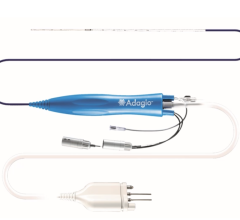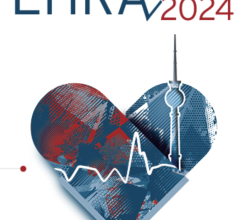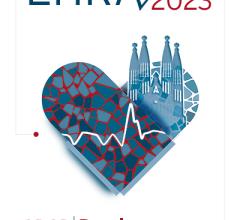
Getty Images
May 23, 2023 — The diagnosis of heart failure is usually missed, denying patients treatments that could improve wellbeing and reduce mortality. That’s the finding from a late breaking science presentation today at Heart Failure 2023, a scientific congress of the European Society of Cardiology (ESC).1
“For patients with heart failure, lifestyle advice, medicines and devices can improve symptoms, reduce morbidity and prolong life but this requires someone to recognize and diagnose the condition,” said principal investigator Professor John Cleland of the University of Glasgow, UK. “The earlier the diagnosis, the more effective treatment is likely to be. However, the results of this analysis suggest that most patients with heart failure die without the diagnosis ever being recognized.”
Many patients with heart failure have symptoms and signs for years before the diagnosis is finally made, which is usually only after the breathlessness and ankle swelling become severe enough to require hospitalization.2 ESC Guidelines recommend loop diuretics to treat symptoms and signs of congestion due to heart failure.3 Accordingly, loop diuretics might be considered a surrogate for symptoms and signs of heart failure requiring further investigation.
Professor Cleland said: “My colleagues and I noticed that many patients without a diagnosis of heart failure were treated with loop diuretics in an international trial of atrial fibrillation.4 Prognosis was more strongly related to the use of loop diuretics than to a diagnosis of heart failure. We subsequently showed similar results in an international trial of type 2 diabetes.5 We suspected that many patients taking loop diuretics had heart failure but it had just not been recognized.”
Electronic health records for around one million adults in the Greater Glasgow and Clyde area of Scotland were used to investigate the relationship between a diagnosis of heart failure, loop diuretic dispensing and prognosis. At baseline (2010/11), 13,000 adults (1.3%) had a diagnosis of heart failure, a prevalence similar to the UK average,6 but 31,807 (3.2%) were receiving loop diuretics. Only one-quarter of those receiving loop diuretics (7,844 patients; 25%) had been diagnosed with heart failure. Patients taking loop diuretics were of similar age whether or not they had a heart failure diagnosis. However, 70% of those taking loop diuretics without a diagnosis were women whereas only 50% of those who also had a diagnosis of heart failure were women.
Further analyses were conducted in 198,898 participants receiving treatment for a broad range of cardiovascular diseases, mainly hypertension, coronary artery disease or heart failure, or taking loop diuretics only between 2010 and 2011. Patients were classified into one of four groups: 1) loop diuretics alone (23,963 patients; 12%), 2) heart failure diagnosis alone (5,156; 3%), 3) both (7,844; 4%), or 4) neither (161,935; 81%).
Over the next five years, for patients who were neither taking loop diuretics nor had a diagnosis of heart failure at baseline (Group 4), three times more (9%) started taking loop diuretics than were diagnosed with heart failure (3%). Few patients initiated on loop diuretics, predominantly by primary care physicians, were investigated for heart failure by echocardiography or by measuring natriuretic peptides, although many had blood samples taken for other tests such as haemoglobin or creatinine. People taking loop diuretics at baseline were more likely to be diagnosed with heart failure in the following five years (11%) than people not taking loop diuretics at baseline (3%).
By five years, about 35,000 (18%) people included in the cohort had died; 23% of these deaths were preceded by a diagnosis of heart failure (86% also treated with loop diuretics) while 32% were preceded by initiation of loop diuretics but without a diagnosis of heart failure. Of patients dispensed loop diuretics without a diagnosis of heart failure at baseline, 40% died during follow-up but only 11% received a new diagnosis of heart failure. Professor Cleland said: “While some patients taking loop diuretics were eventually told they had heart failure, many more died without ever receiving a diagnosis and therefore the opportunity for treatments to improve their outcome.”
Professor Cleland concluded: “It is likely that many patients treated with loop diuretics have undiagnosed heart failure. It is also possible that inappropriate use of loop diuretics is driving adverse outcomes. Any patient treated with loop diuretics should be investigated for serious underlying heart disease, either by measuring natriuretic peptides or doing an echocardiogram or both. The combination of undiagnosed heart failure and inappropriate loop diuretic use may be one of the largest and most serious problems that cardiologists have yet to tackle. Ignoring it and hoping it goes away would be a tragedy.”
For more information: www.escardio.org
Find more ESC23 conference coverage here
References and notes
1The Greater Glasgow & Clyde Population Study will be presented during the session ‘Late breaking clinical trials: epidemiology and registries’ which takes place on 22 May at 15:00 CEST in Room 3.
2Cleland JGF, Pfeffer MA, Clark AL, et al. The struggle towards a Universal Definition of Heart Failure-how to proceed? Eur Heart J. 2021;42:2331–2343.
3McDonagh TA, Metra M, Adamo M, et al. 2021 ESC Guidelines for the diagnosis and treatment of acute and chronic heart failure. Eur Heart J. 2021;42:3599–3726.
4Cleland JGF, Shelton R, Nikitin N, et al. Prevalence of markers of heart failure in patients with atrial fibrillation and the effects of ximelagatran compared to warfarin on the incidence of morbid and fatal events: a report from the SPORTIF III and V trials. Eur J Heart Fail. 2007;9:730–739.
5Pellicori P, Fitchett D, Kosiborod MN, et al. Use of diuretics and outcomes in patients with type 2 diabetes: findings from the EMPA-REG OUTCOME trial. Eur J Heart Fail. 2021;23:1085–1093.
6Conrad N, Judge A, Tran J, et al. Temporal trends and patterns in heart failure incidence: a population-based study of 4 million individuals. Lancet. 2018;391:572–580.
Related Women's Heart Health Content:
Study Confirms: The Path to Heart Failure Is Different for Women
Diagnostic Differences in Women’s Heart Health
VIDEO: Differences in Cardiac Complications and Presentation Between Men and Women — Interview with Cindy Grines, M.D.
DAIC's Women's Cardiovascular Health Channel
VIDEO: How to Build a Successful Women’s Heart Center — Interview with Malissa Wood, M.D.
VIDEO: Creating a Cardio-Obstetrics Team — Doreen DeFaria Yeh, M.D.


 August 29, 2025
August 29, 2025 









